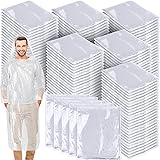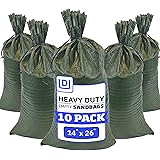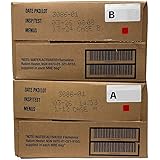1. Prioritize Hand Hygiene
Understanding the Importance
Let me tell you, hand hygiene becomes your bestie during a crisis. It’s like that ultimate shield against germs and dirt! Whether you’re managing daily tasks or facing uncertain situations, your hands pick up all sorts of nastiness. I’ve seen firsthand how a few simple habits can make a massive difference.
Think about it: we touch our faces, grab food, and even shake hands. All of these actions can transfer germs. In times of crisis, the last thing you want is to compromise your health with something as simple as dirty hands. So stay committed to keeping your hands clean!
Whenever available, I carry hand sanitizer with me. Even if I wash my hands regularly, having that backup just makes everything feel a little more secure. Remember, it’s crucial to wash your hands not just when they look dirty but regularly throughout the day!
How to Wash Properly
Okay, so let’s talk about the nitty-gritty of handwashing. It’s not just about splashing some water on your hands and being done with it. To wash your hands properly, you gotta wet them first, lather with soap, scrub for at least 20 seconds, and rinse off.
I often hum a little song while I wash my hands—makes the time fly by and keeps me from rushing the process. Focus on all those finger spaces, nails, and wrists. I’ve learned that it’s easy to miss those areas if you’re not careful.
When soap and water aren’t an option, having a pocket-sized hand sanitizer is a lifesaver. Aim for a product that’s at least 60% alcohol. Just remember that this isn’t a replacement for handwashing when it’s available—use it as an extra defensive move!
Tips for Special Situations
Alright, so you might encounter situations where handwashing isn’t feasible—like camping or during emergencies. In these cases, I recommend prepping ahead. Carrying disposable wipes is super handy for when you can’t wash up.
If you’re staying in one place for a while, find a water source, even if it’s just a simple jug. Always think ahead about how you can maintain your hygiene in less-than-ideal circumstances—it really comes down to being resourceful.
== > What if ... Get a FREE Subscription to PREPARE
Lastly, whenever you can, remind those around you to wash their hands too. It’s like creating a mini hygiene community, and trust me, it helps you all feel a bit more secure together.
2. Maintain Oral Hygiene
Why It Matters
Next up: oral hygiene. I can’t stress enough how vital it is, even when times get tough. Some people might think, “Well, I’m just sitting at home,” or “I don’t see anyone.” But your mouth is your gateway to your body!
If you skip brushing your teeth, you’re inviting bacteria to party in your mouth, and nobody wants that! I learned that even in tough times, maintaining a clean mouth can keep your spirits up and chase away that groggy feeling.
Don’t underestimate the power of minty freshness either. It just feels good! Plus, keeping your teeth healthy can save you from serious dental issues down the road, which no one wants to deal with during a crisis.
Creating a Portable Oral Care Kit
To keep the momentum going, I’ve created my own portable oral care kit. It’s a game changer for when I’m on the go. I pack a travel toothbrush, mini toothpaste tube, and floss. This way, I can easily freshen up anywhere, whether it’s an office, car, or even in a campsite.
Flossing may sound like a chore, but it’s super important. An extra minute can help prevent gum issues, which in a crisis, you definitely want to avoid. Just whip out that floss wherever you are. Flash it like you mean it!
And if I know I might not have access to toothbrushes for a while, I check out some mouthwash alternatives. They do wonders and can help minimize bacteria until I can brush again. Always be prepared, folks!
Chewing Gum: A Quick Fix
Let’s chat about another quick fix—chewing gum. It’s my go-to practice. When I don’t have access to my kit or even during long waits, popping in a piece of sugar-free gum gives me a cleaner feel and fresh breath. Win-win!
Plus, it’s great for keeping my jaw moving, which can ease some anxiety during tense times. Just imagine chewing away your worries! It might sound funny, but it’s a habit I swear by while on the go.
All in all, integrating these little oral hygiene habits into my day-to-day—even in a crisis—really keeps me feeling good and healthy. A little goes a long way!
3. Take Care of Your Skin
Importance of Skin Hygiene
Alright, talking about skin care might seem a bit trivial in a crisis, but trust me, it absolutely matters! Your skin is your barrier against the world. Keeping it clean and hydrated helps in preventing infections or rashes from forming.
During a crisis, it could be easy to forget about moisturizing, but it plays a significant role in your overall comfort. Dry skin can be irritating and distract you during stressful situations. I’ve found that taking just a few minutes to care for my skin makes me feel so much better.
And hey, if you’re outside a lot, don’t forget about sunscreen! Protecting your skin from harmful UV rays is crucial, even if you’re focused on other survival aspects.
Develop a Simple Routine
Creating a simple skin care routine doesn’t need to be elaborate. As part of my routine, I ensure to wash my face at least twice a day, using either water or a gentle cleanser. Keeping it clean ensures I’m not burying my pores under dust or sweat.
Don’t forget to moisturize! Having a good moisturizer on hand can make a world of difference. When I’m hydrated, I just feel better about everything. Plus, my skin doesn’t rebel against me!
A tip I love is using eco-friendly or multi-purpose products. I find that items that double as a moisturizer and sunscreen save space and are easier to carry in my bag.
Dealing with Breakouts and Irritations
Let’s be real—stress can show up on your skin. Breakouts or irritations can flare up during crises, and it’s important to have a little first-aid kit ready for your skin. Whenever I know I might encounter these issues, I pack along some acne treatments or soothing creams.
Get Preparedness and Self-Reliance Tips. Subscribe Now!
Whenever I feel a breakout coming or my skin starts acting up, I don’t panic! I apply my go-to remedies consistently to keep the situation under control. Always listen to what your skin is saying—everyone experiences their problems differently!
And remember, give yourself a little grace during tough times. Sometimes, feeling good comes from focusing on self-care, even if it’s just for a few minutes a day to pamper yourself.
4. Practice Mental Hygiene
Recognizing the Connection
Mental hygiene? Yep, you read that right! Taking care of your mind during a crisis is just as vital as physical care. Stress can manifest physically, and anxiety levels can skyrocket during uncertain times. I’ve learned that making mental health a priority can be a game-changer!
I try to dedicate a portion of my day to check in with how I’m feeling. Journaling or simply jotting down my thoughts helps clear my head. Sometimes it’s just about acknowledging emotions, even the tough ones, instead of ignoring them.
Connecting with others is essential. Whether through phone calls, video chats, or messages, reaching out fosters this sense of belonging—even when physically apart. It’s amazing how a chat with a friend can brighten up my day!
Creating Personal Routines
In a crisis, routines can bring a sense of normalcy and control. I’ve discovered that scheduling time for activities I enjoy—like reading, exercising, or even cooking—relieves stress. These little pockets of time for joy can drastically shift my perspective.
Sometimes I’ll set up a mini self-care night with a good book or binge a few episodes of my favorite show. Honestly, I can feel the stress melting away. Routines can ground you, especially when life feels unpredictable.
Engaging in relaxation strategies—like deep breathing or meditation—has been incredibly beneficial for me as well. Taking just a few minutes to pause and breathe can keep me centered, no matter what the chaos around me looks like.
Seeking Professional Support
There’s no shame in seeking help during tough times! Whether chatting with a counselor or joining a support group, finding resources can help ease that mental load. It took me a while to embrace this, but I found that talking with someone trained can provide valuable insights.
I urge anyone feeling overwhelmed to consider professional support. They can equip you with tools to manage stress and improve your overall well-being. It’s about investing in your mental health.
Always remember: everyone goes through challenging times, and there’s strength in sharing those struggles with another person. You’re never alone in this fight!
5. Adapt to Your Environment
Assessing the Situation
One thing I learned is to be adaptable. It’s essential to assess your environment and be resourceful with what you have around you. Are you stuck at home? Out camping? In a shelter? Each situation calls for different hygiene tactics!
For example, if I’m at home during a crisis, I make sure I have cleaning supplies available. I clean high-touch surfaces daily, ensuring a sanitary environment. It might take a little planning, but it’s worth it in the long run!
If I’m off the grid, I think creatively—is there a way I can use natural resources for cleansing? Maybe some clean river water and safe plants for scrubbing or a DIY solution? Looking at my surroundings can create some fantastic alternatives.
Improvising Solutions
Being resourceful is a skill I continuously develop! When traditional hygiene products are limited, I often trial different makeshift solutions to keep hygiene in check. For example, I’ll use vinegar or baking soda as cleaning agents when I can’t get regular products.
One time, while camping, I had run out of shampoo. But I remembered that dry shampoo works wonders! I adapted my routine to use baby powder instead, and it saved the day—my hair felt fresh despite the situation!
Also, when it’s hard to find cleaning wipes, I switched to using cloths and made a homemade solution—just a mix of water, vinegar, and essential oils. It’s all about thinking outside the box!
Stay Informed and Be Prepared
Staying updated on hygiene guidelines during any crisis is critical. Whether facing a natural disaster or a widespread illness, visiting trusted health websites is crucial. Just because you’re in a challenging spot doesn’t mean you should overlook good hygiene practices.
Preparation is invaluable as well. Whenever I read or find tips, I note down practical advice to keep on hand. This way, I feel more equipped to tackle any situation. I’ve found that knowledge gives me more confidence, which helps during stressful times.
Continuously adapting my personal hygiene practices has become second nature. Being flexible and well-prepared empowers me to take control of my health, even amidst chaos. That’s the key, I believe!
Frequently Asked Questions (FAQ)
1. Why is hand hygiene so important during a crisis?
Hand hygiene is crucial because it helps prevent the spread of germs and bacteria that can lead to illness. Keeping your hands clean, especially when you’re managing high-stress situations, minimizes risk.
2. How can I maintain oral hygiene if I have no access to a toothbrush?
In such cases, using chewing gum can help freshen your breath. Additionally, carrying mouthwash or oral wipes can also help when a toothbrush isn’t available.
3. What can I use for skin care if I don’t have my usual products?
You can use natural alternatives such as coconut oil or aloe vera for moisturizing. A simple mix of water and gentle soap can help maintain cleanliness.
4. How can stress impact my hygiene practices?
Stress can lead to forgetfulness or neglecting personal hygiene, which can worsen mood and overall health. Practicing self-care and having routines can help mitigate this.
5. What’s the best way to adapt my hygiene practices to changing environments?
Assess your surroundings and be resourceful. Use what’s available, like natural products or local resources, to maintain hygiene as needed. Stay updated on best practices to make informed decisions.






